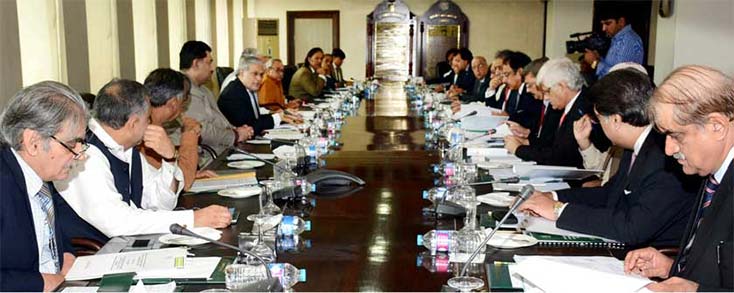In an interesting turn of events, The Senate Select Committee showed its dismay over armed forces institutions hiding information.
The committee suggested amendments to “Right to Information Bill”, to make sure that armed forces were not able to hide any information in the name of national security. The committee was of the view that armed forces must not hide information involving corruption, embezzlement, and violation of human rights.
Farhatullah Babar, committee chairman observed that armed forces never intended to share the information, and always hid behind the pretext of ‘national security’.
The committee chairman shared his remarks.
“If the defense ministry doesn’t want to give information, it refers to ‘Rawalpindi’. Their reference is given even in cases that have nothing to do with ‘Rawalpindi’.
Senator Pervaiz Rashid, the ex-information minister also seemed to be perturbed by the fact that some of the information was not even shared with the Prime Minister. And the premier only came to know about those things four or five years after the incident had taken place.
Two Principles of Sharing Sensitive Information
On this occasion Senator Babar said that armed forces could use two principles to overcome the problem of transparency in sharing information, Johannesburg Principles and RTI Laws.
Johannesburg Principles
The Johannesburg Principles were first adopted by a group of experts on 1st Oct 1995. These principles oversee sensitive state matters involving international law, national security, and human rights as convened by ARTICLE 19, the international Centre against Censorship, and collaboration with the centre for Applied Legal Studies of the University of the Witwatersrand in Johannesburg.
The basic idea behind these principles is to ensure protection of human rights, evolving state practice, and general principles of law.

RTI Laws
The Right To Information Laws help create a fine balance between Privacy and Right to hide Information. Both of these rights are considered to essential human rights. These rights help hold governments accountable but the overuse of the right to information may also result in surrendering of information, compromising national security of a country.
How These Laws Apply in Pakistan Context?
- These two rights have always been there but we need to understand as a nation, the fine balance which exists between having information and protecting our country’s national interests.
- During the last 17 years Pakistan has fought the war on terrorism and have been living dangerously.
- We need to make sure that information relating to human rights must be shared with the masses.
With the current situation in the country, and CPEC project in progress, we must be very careful not to tread on the path which might reveal important national interests or reveal sensitive information.


